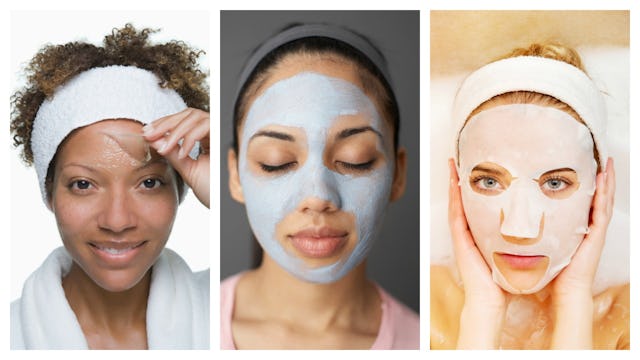Why You Should Avoid This Common Skin Care Ingredient

Let’s get real here: Skin care can be confusing. I’ve been using skin care products for over 30 years, and I’m constantly learning new things.
When I was a teen, I heard oil can cause acne, so I dried my face out with acne pads, only to have to worst skin in the 9th grade.
I know now that my skin needs moisture in order to stay clear and bright, and now I have to tell my teen daughter the same thing because she’s tempted to buy all the acne-fighting things, even though she’s never had a zit in her life.
But not any moisture will do. We live in a time when everyone loves to slather all kinds of oils all over their food, hair, and bodies, but that’s not the answer either.
Just because something has oil in it, doesn’t mean it’s going to be what your skin needs, and this is why:
An article published in Allure talks about mineral oil; an oil found in lots of skin care products. You will spot this ingredient in luxe and bargain products, alike, but aesthetician Sonya Dakar, who has clients such as Jennifer Lawrence and Gwyneth Paltrow, says we should be avoiding it all together.
Why?
Dakar says it actually does damage to your skin by not only clogging pores, but it also “remains on the surface of skin, making it a reflector of the sun, which can lead to more sun damage and discoloration.”
Dermatologists tend to agree. “Mineral oil can clog pores,” says Dendy Engelman, MD, of Manhattan Dermatology and Cosmetic Surgery. “This can lead to acneiform eruptions, blackheads, milia—very undesirable results.”
So while it may make your skin feel good and moisturized in the moment, the positive effects of mineral oil are short term. In actuality, it’s suffocating your skin because it sits on top of it and doesn’t absorb.
Before long, you will have clogged pores and more sun damage, which we are all trying to avoid, because the reality is when you get older, you will get wrinkles and pimples, and this will just make you have more of them.
No thanks, I’d rather not speed up that process. My hormones are doing a fine job with that on their own.
Renée Rousseau, also quoted in the article, is an aesthetician to celebrities and has good advice to help you tell if a moisturizer is right for your skin: She says since your skin acts like a sponge, and only takes what it needs, a good rule of thumb is to put on your face cream, then wait about five minutes. If you can still feel the leftover lotion on your face, it hasn’t been absorbed into your skin, meaning it’s likely too heavy for you at that time.
Remember, you want the moisture going into the skin. When it’s sitting on top of the skin, it’s not doing its job and can lead to “clogged pores and dull, tired-looking skin,” Rousseau says.
But you don’t have to give up oil all together. There are plenty of moisturizing facial oils out there that will do the job nicely.
You can’t assume your product is safe because you are shelling out a shit ton of cash for it. There’s plenty of luxe skin care brands that include mineral oil in some of their products. On the flip side, there’s plenty of affordable skin care products with no problematic ingredients. Unless you’re treating an open wound, you are not benefitting from mineral oil in your skin care. If you see petroleum, paraffin, white oil, or some derivative of these things, then the product contains mineral oil.
So, bottom line: If you feel your skin isn’t looking its best, it’s definitely time to start reading product labels.
This article was originally published on